
views
New Delhi: "Hum yahan kheti-baadi karte hain (We do farming here)," says Gareeb Das from Mallah (boatmen) community while standing in front of the confluence of rivers in Allahabad’s Triveni Sangam. He proceeds to clear the confusion over the description of his profession. “The Sangam is our khet (field). We run our oars here like the farmer plough his fields and we earn our daily bread by the river. But that is not all that we want.”
Engaged in boating and also supporting the Namami Gange Mission, the Mallahs aspire for greener pastures like jobs in government offices and private firms. When Allahabad went to the polls on February 23, the Mallahs shared how unimpressed they were by the Samajwadi Party-Congress alliance.
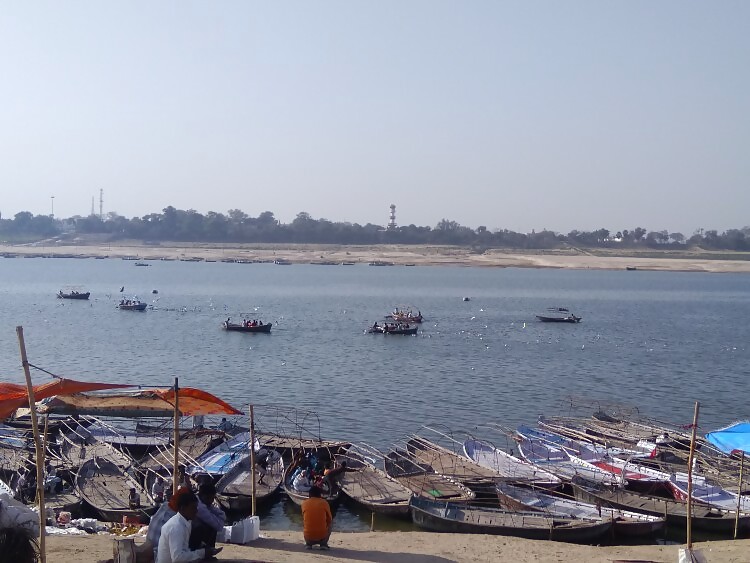
Vishambhar Nishad, who lives by the Yamuna river, says, “Earlier, there were doubts over whether the sangam between the two parties will happen. It has taken shape now, but we are with (Prime Minister) Narendra Modi. Look at him, he sweats for the country, we are ready to sweat for him.”
The members of the community fiercely believe none of the regional parties worked for their benefit — neither the SP nor the BSP. “The Samajwadi Party works for Yadavs and Muslims, the Bahujan Samaj Party works to uplift the Dalits. But the BJP will work for us, the poor.
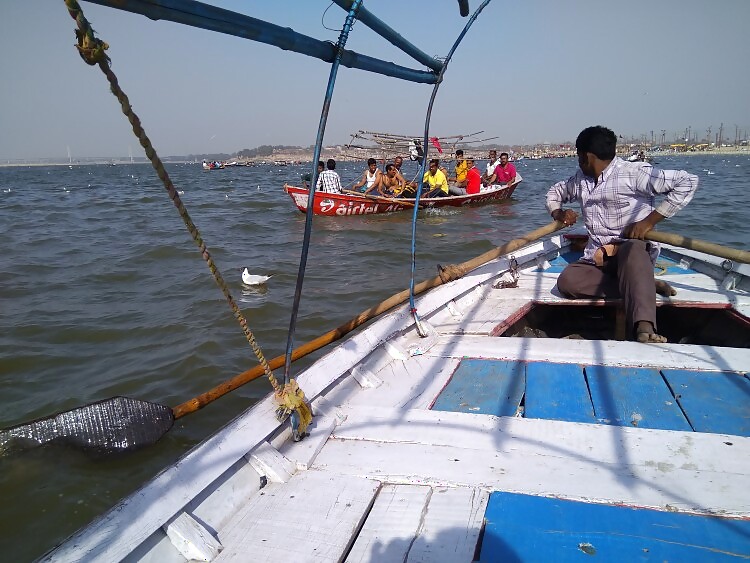
With notebandi (demonetisation), Modi punished the corrupt and those who amassed black money,” adds Nishad.
Gathered around the boat by the river, the Mallahs share how they haven’t forgotten what Mayawati said about them. “The BSP leader wanted to deprive our community of benefits that we truly deserved as natives of the riverside. She said that we are not from this country,” says another Mallah.
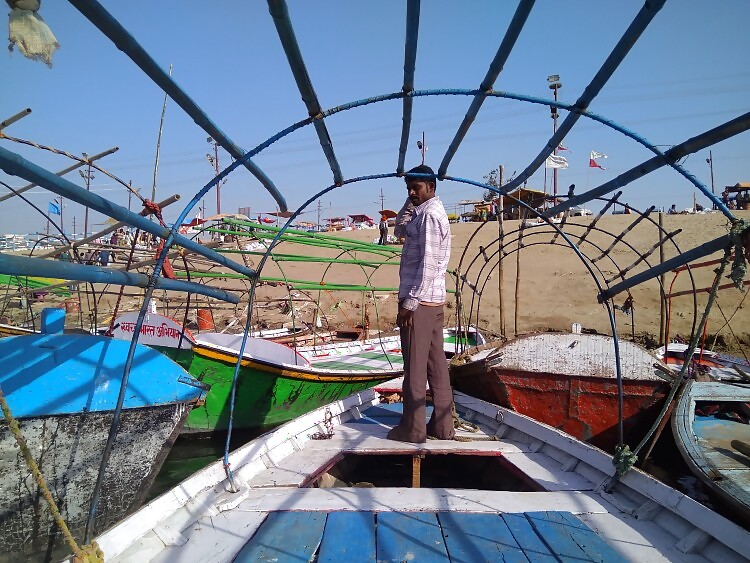
The Modi government launched the Namami Gange Mission three years ago with a slew of development projects focused on river clean-up. The tenders floated had one localised condition for the applicant firms: It said that the firms should employ local communities by the river — the Mallahs.
As part of this project, in January 2017, a private firm that deals with exports and manufacture of waste water treatment equipment hired 12 Mallahs for a three-year contract. The task is being monitored by the Allahabad Nagar Nigam and the company pays the Mallahs Rs 9,000 as the work is manual right now.
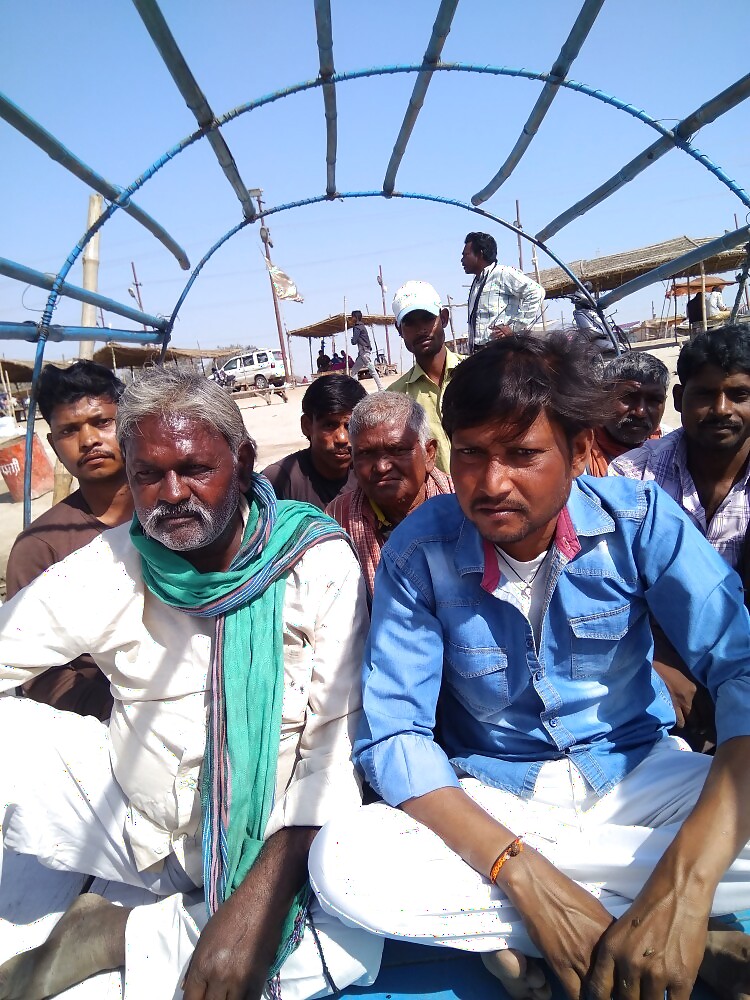
Speaking to News18, Harsh Dev Singh, a marketing professional from the firm that has started projects in Allahabad, says, "They have knowledge of the water and are best suited for the job of cleaning the Ganga. The tender specified that locals should be hired for the development project. As of now their work is manual, so they are being paid Rs 9,000." The firm will later take these works to Varanasi, Mathura and other regions.
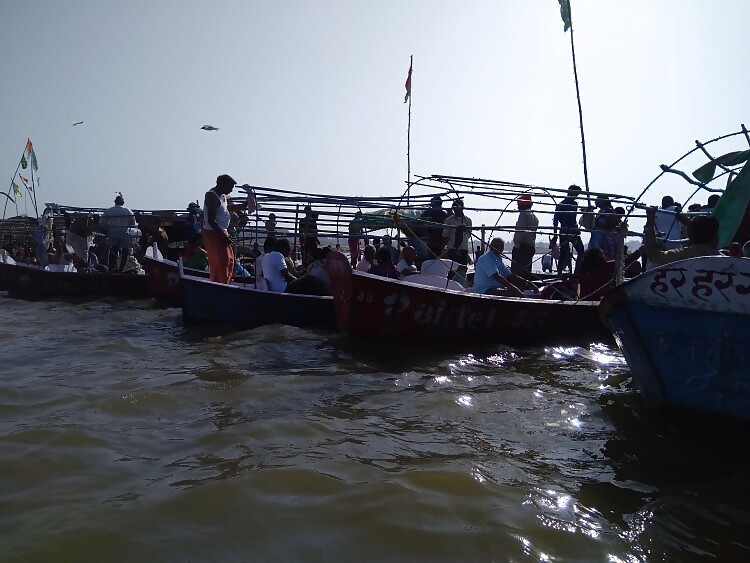
"We love Ganga and are ready to give everything for its cleanliness. Sometimes, people don’t understand and enter into minor scuffles with us when we stop them (from polluting the river). Many of the visitors feel bad and ask us to mind our own business. They tell us to look away."
Giving words to the aspiration of the boatmen community, he lists a number of professional opportunities that can be made available to them apart from boating. “We have knowledge of these waters. That is why these firms have hired us. It is on a contract basis and we want to be salaried professionals because jobs don’t come to us easily. We can be given jobs in PWD, Navy and other professions that require expertise in water knowledge.” He has 11 other volunteers working in the Namami Gange Mission.
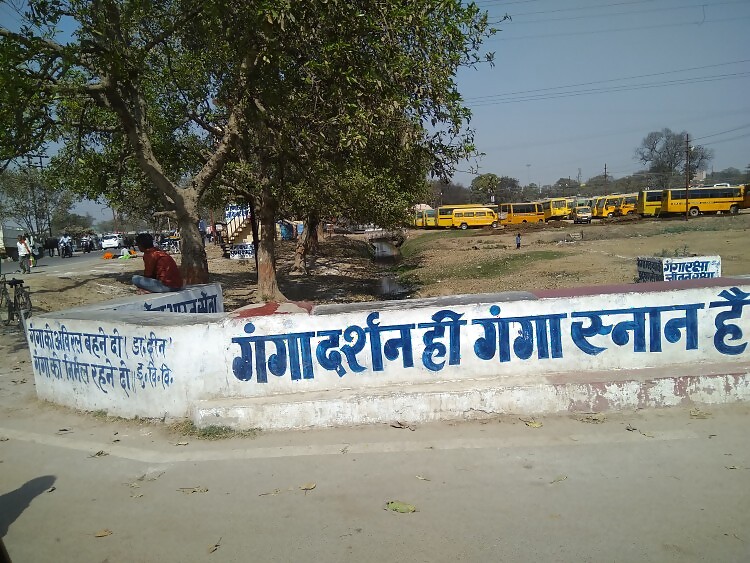
His colleague in this mission, Pinto Nishad, was trained at ITI but no jobs came his way. “There was no interview call or job offer so I returned to the river,” says Pinto. He laments that even graduates find it difficult to secure jobs. “Naam dekh kar hi hata dete hain (They look at our names and reject us).”
Rajan Nishad, leader of the Nishads, says, “There are many battles we wage even with the traditional occupation of boating. Every time there is a flood in nearby areas, our boats are taken and returned with damages. We do not get compensation on time and our boats lie broken.”
Pointing at one of the broken boats, he says, “Many like this one were taken to Azamgarh, Gorakhpur and Deoria but they came back to us in shambles. We are waiting for its revival, but there is no one to listen to us.”




















Comments
0 comment